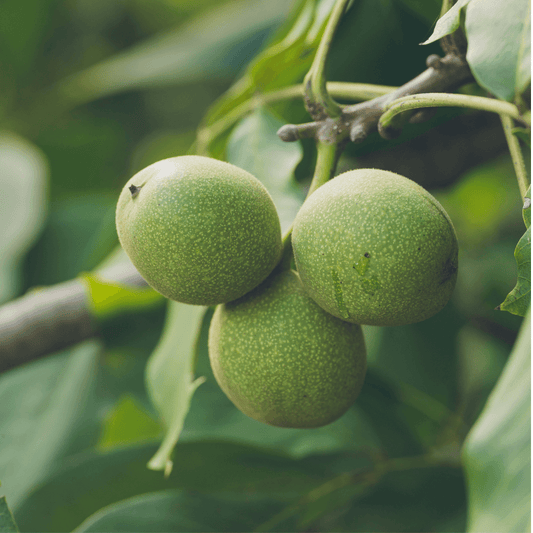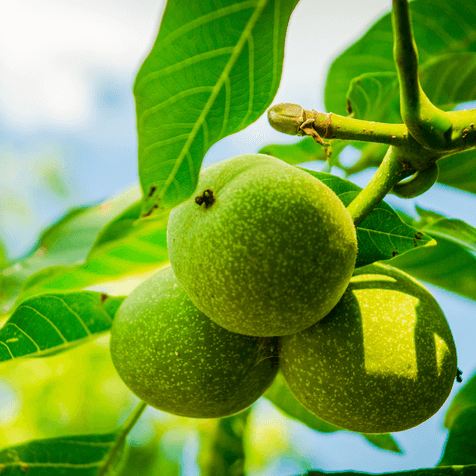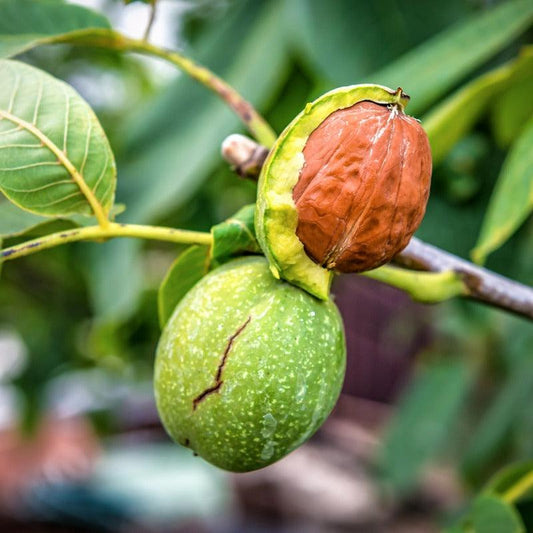Collection: Bare Root Walnut Trees
Explore Walnut Trees for Sale: The Majestic Walnut Tree for Your Garden
Explore premium walnut trees for sale, including high-yielding bare root walnut trees like Chandler, Ambassador, and Franquette. Each walnut tree offers unique traits: Chandler thrives in California with large, flavorful nuts; Ambassador is fast-growing and disease-resistant; Franquette is late-blooming with rich taste. These deciduous walnut trees, available as grafted or seedling stock, feature attractive compound leaves and thrive in full sun with well-drained soil. Whether you're planting for shade, ornamental value, or nut production, our walnut trees—including English and Black walnut varieties—make a hardy, rewarding addition to any landscape.
Distinctive Traits:
- Female Flowers: Walnut trees bear distinct female flowers that mature into fruit. The female flowers typically measure several inches long and are characterized by their intricate, almost delicate appearance.
Bountiful Harvests:
- Tree Produces: The walnut tree's prime allure lies in its annual yield. The English walnut, known for its thin-shelled, tasty nuts, is widely cultivated for commercial purposes, whereas the black walnut's nuts have a thicker shell but are highly prized for their rich, robust flavor.
Challenges:
- Canker Disease: Walnut trees may face challenges like canker disease, a fungal infection that can affect the bark, causing cankers or lesions. Maintaining proper care, including pruning infected branches and promoting tree vigor, aids in disease prevention.
Value and Significance:
- Highly Prized: Both varieties of walnut trees hold significant economic and cultural value. The wood from black walnut trees is sought after for its strength and beauty, often used in fine woodworking and furniture crafting. The nuts from English walnuts find extensive culinary usage, adding flavor and nutritional value to various dishes.
Cultivation Insights:
- Optimal Conditions: Walnut trees thrive in well-drained, fertile soils and prefer areas with adequate sunlight exposure.
- Growth Patterns: These trees can reach impressive heights and widths, providing ample shade and making them a focal point in larger landscapes.
Nuts and Nutritional Value:
- Nutritional Richness: Walnut nuts are highly nutritious, boasting omega-3 fatty acids, antioxidants, and essential vitamins and minerals. Regular consumption is linked to various health benefits, including heart health and brain function enhancement.
Environmental Impact:
- Ecosystem Contribution: Walnut trees contribute to ecosystem diversity by providing habitats for various wildlife and contributing to soil enrichment.
Walnut trees, with their distinctive features, prized produce, and environmental significance, hold a cherished place in horticulture and ecology. While challenges like canker disease may arise, these trees continue to stand as symbols of strength, value, and natural beauty, offering both tangible and intangible benefits to ecosystems and human endeavors alike.





